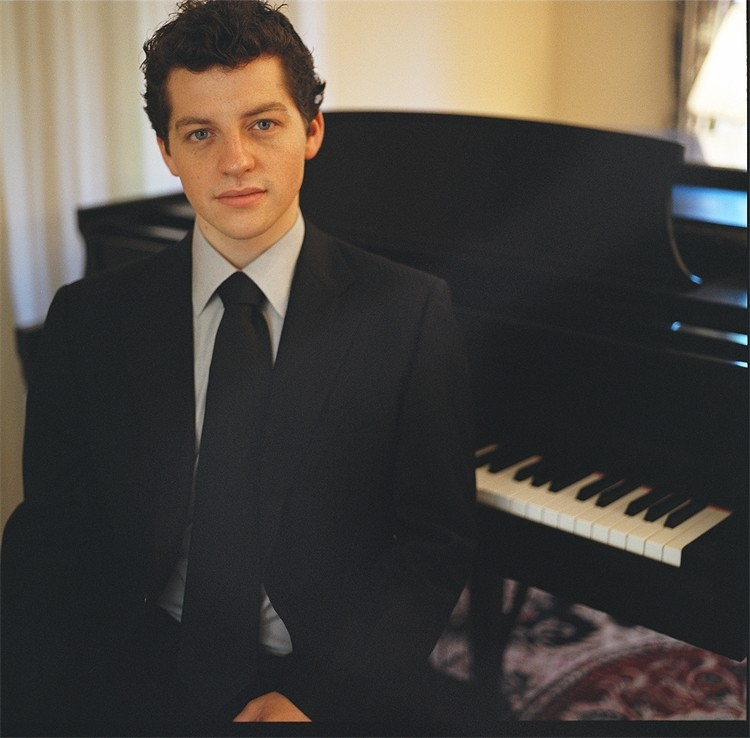Two classical celebrations of Valentine’s Day are coming up soon. At 3 p.m. today, pianist Laura Kargul and violinist Ronald Lantz will present a program of French romantic music at Corthell Hall on the Gorham campus of the University of Southern Maine.
On Tuesday, the Portland Symphony Orchestra’s regular concert will also be devoted to the patron saint of lovers, with two very different musical treatments of “Romeo and Juliet,” plus the Mozart Piano Concerto No. 21 in C-Major, of “Elvira Madigan” fame. Maine’s own prodigy, Cape Elizabeth native Henry Kramer, will do the honors.
The USM recital will feature the Maine premiere of a little-known Sonata for Violin and Piano (1921) by Jacques de la Presle. A member of the French anti-Wagneristes, his work was influenced by Ravel, but is characterized by “aristocratic delicacy and poise,” to quote one admirer. He received the Grand Prix de Rome with Lily Boulanger in 1913, but was unable to take up residence because of World War I, in which he served as a stretcher bearer.
De la Presle was also a prolific songwriter and pioneer of radio broadcasting. There’s a wonderful photo of him standing before a huge and primitive microphone with Josephine Baker.
The program will also include a Nocturne by the aforementioned Lily Boulanger, whom Kargul characterizes as the younger and even more gifted sister of noted musical pedagogue Nadia Boulanger; the Sonata in A Major of Cesar Franck; transcriptions of two Liszt love songs; and Faure’s “Apres un reve.”
I’m glad Lantz and Kargul used the word “romantic” without a capital “R.” Even in light of Chopin and Berlioz, I have trouble thinking of French composers as part of the Romantic movement in music. Amorous, yes; Romantic, no.
An exemplary passage comes to mind from a French Romantic novel (“Mademoiselle de Maupin”) in which the hero, having achieved his heart’s desire, finds that his lover’s body is putting his arm to sleep.
Next year, the duo might consider a work I came across when looking for Romantic classical music for this column. It is by the most famous female composer of the Baroque Era, Elisabeth-Jacquet de La Guerre (1665-1729), who as a child prodigy became a protege of Louis XIV and a member of the entourage of his mistress, Madame de Montespan.
De La Guerre was married to an organist and had a son, also a prodigy, who died at the age of 10. She is best known for her harpsichord pieces, which are reminiscent of Scarlatti’s sonatas, and also wrote an opera, “Cephale and Procris,” based on the story from Ovid’s “The Art of Love,” in which Procris dies because of her jealousy of the West Wind, Zephyrus.
Elisabeth’s husband died in 1704, but before that she wrote a duo for harpsichord and violin titled “Le Petite Mort,” which depicts the pleasures that her secret admirer could expect in the future.
A transcription of the work for violin and cello can be heard on the CD “Le Petit Mort” by the Lumiere Duo (Lumiere Records Inc.), which also includes a lot of other amorous, but not Romantic, mood music.
For Romance with a capital “R,” music lovers will have to attend the PSO concert on Tuesday — Tschaikovsky’s Fantasy Suite from “Romeo and Juliet,” Prokofiev’s Suite from “Romeo and Juliet,” and the “Elvira Madigan” piano concerto. (For more on this concert, visit www.pressherald.com/life/go.) Enough passion and tragedy to last until the chocolates vanish and the flowers wilt.
Christopher Hyde is a writer and musician who lives in Pownal. He can be reached at:
classbeat@netscape.net
Copy the Story Link
Send questions/comments to the editors.



Success. Please wait for the page to reload. If the page does not reload within 5 seconds, please refresh the page.
Enter your email and password to access comments.
Hi, to comment on stories you must . This profile is in addition to your subscription and website login.
Already have a commenting profile? .
Invalid username/password.
Please check your email to confirm and complete your registration.
Only subscribers are eligible to post comments. Please subscribe or login first for digital access. Here’s why.
Use the form below to reset your password. When you've submitted your account email, we will send an email with a reset code.